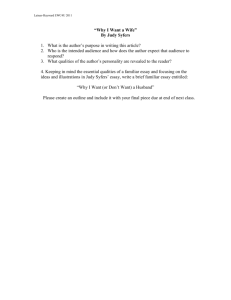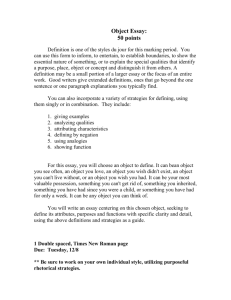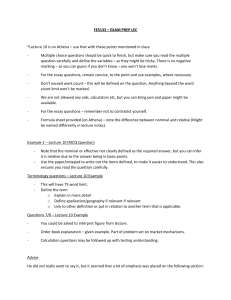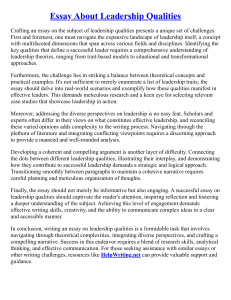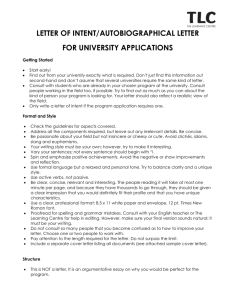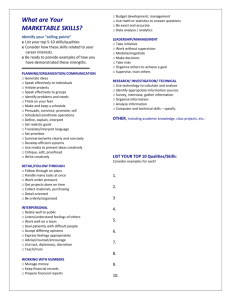Words to Watch for in Essay Questions
advertisement
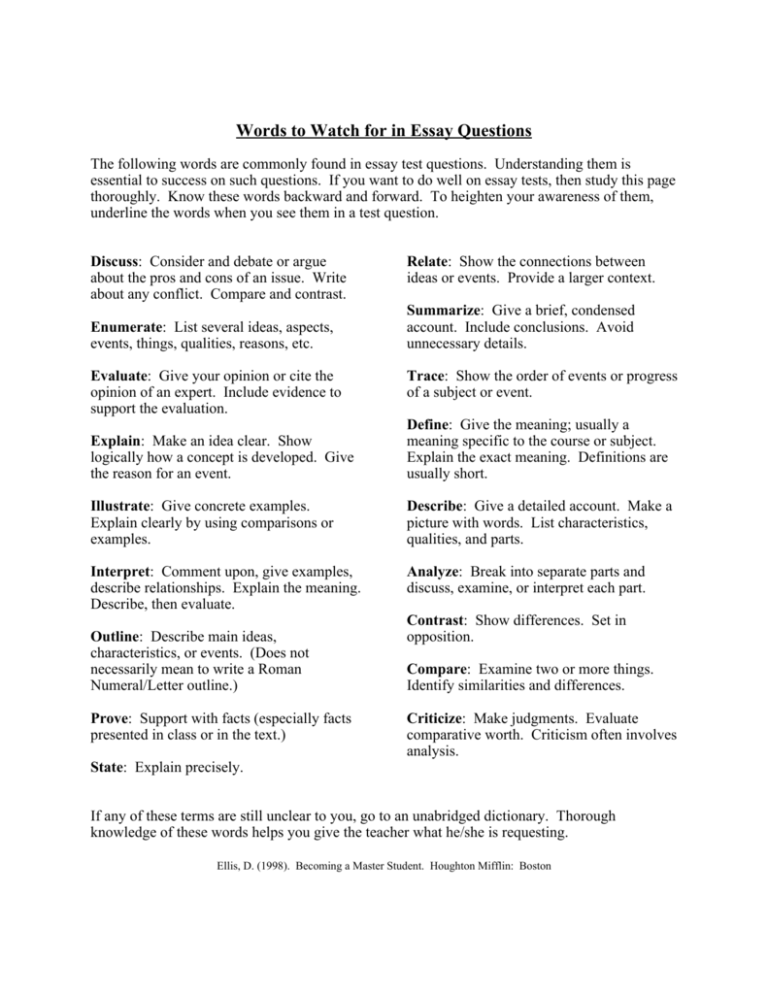
Words to Watch for in Essay Questions The following words are commonly found in essay test questions. Understanding them is essential to success on such questions. If you want to do well on essay tests, then study this page thoroughly. Know these words backward and forward. To heighten your awareness of them, underline the words when you see them in a test question. Discuss: Consider and debate or argue about the pros and cons of an issue. Write about any conflict. Compare and contrast. Enumerate: List several ideas, aspects, events, things, qualities, reasons, etc. Evaluate: Give your opinion or cite the opinion of an expert. Include evidence to support the evaluation. Relate: Show the connections between ideas or events. Provide a larger context. Summarize: Give a brief, condensed account. Include conclusions. Avoid unnecessary details. Trace: Show the order of events or progress of a subject or event. Explain: Make an idea clear. Show logically how a concept is developed. Give the reason for an event. Define: Give the meaning; usually a meaning specific to the course or subject. Explain the exact meaning. Definitions are usually short. Illustrate: Give concrete examples. Explain clearly by using comparisons or examples. Describe: Give a detailed account. Make a picture with words. List characteristics, qualities, and parts. Interpret: Comment upon, give examples, describe relationships. Explain the meaning. Describe, then evaluate. Analyze: Break into separate parts and discuss, examine, or interpret each part. Outline: Describe main ideas, characteristics, or events. (Does not necessarily mean to write a Roman Numeral/Letter outline.) Prove: Support with facts (especially facts presented in class or in the text.) Contrast: Show differences. Set in opposition. Compare: Examine two or more things. Identify similarities and differences. Criticize: Make judgments. Evaluate comparative worth. Criticism often involves analysis. State: Explain precisely. If any of these terms are still unclear to you, go to an unabridged dictionary. Thorough knowledge of these words helps you give the teacher what he/she is requesting. Ellis, D. (1998). Becoming a Master Student. Houghton Mifflin: Boston
